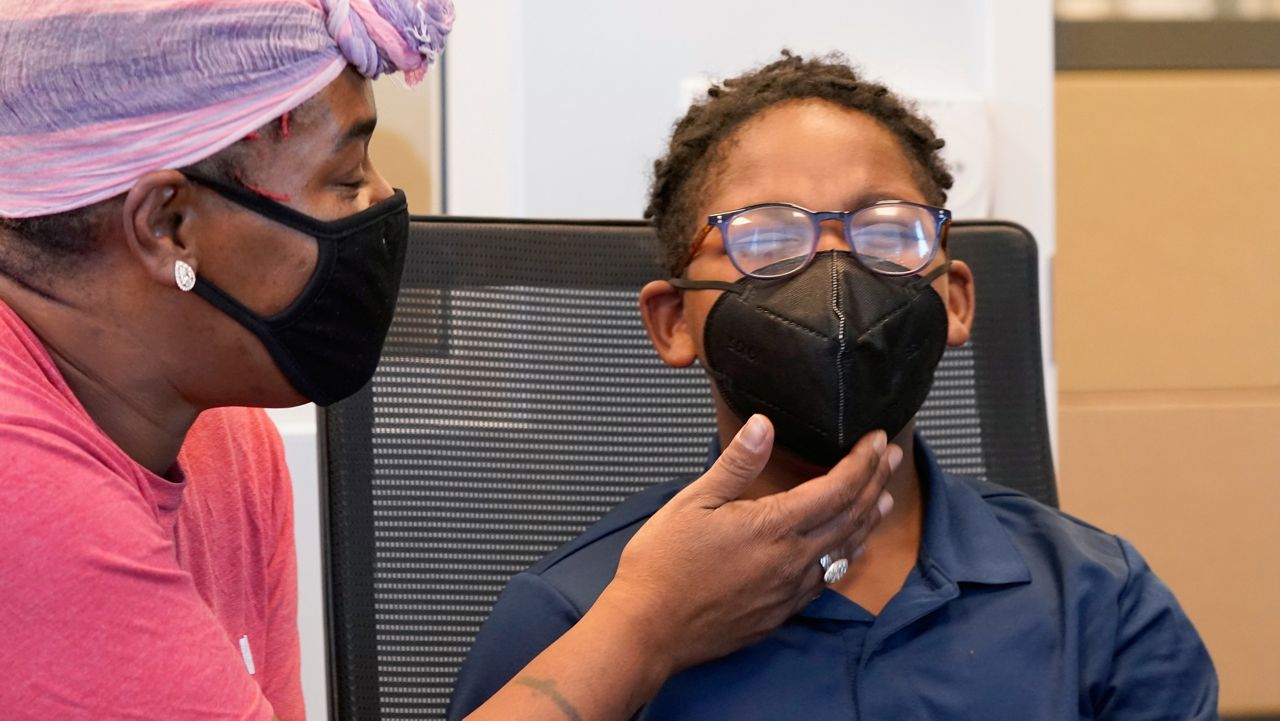The U.S. Food and Drug Administration (FDA) has authorized booster doses of the Pfizer-BioNTech COVID-19 vaccine for kids 12-15, a welcome sign for many parents nationwide amid the omicron variant surge.
"Throughout the pandemic, as the virus that causes COVID-19 has continuously evolved, the need for the FDA to quickly adapt has meant using the best available science to make informed decisions with the health and safety of the American public in mind," acting FDA Commissioner Janet Woodcock said in a statement.
The FDA also said that those eligible for a booster can get one five months after their last dose instead of six. The new rules also allow for a third dose for some immunocompromised children ages 5-11.
"With the current wave of the omicron variant, it’s critical that we continue to take effective, life-saving preventative measures such as primary vaccination and boosters, mask wearing and social distancing to in order to effectively fight COVID-19," Woodcock added.
There is still one more hurdle: The Centers for Disease Control and Prevention (CDC) must sign off on the FDA's expanded guidance before shots can be administered.
If CDC Director Rochelle Walensky signs off, shots can begin; she is expected to rule on that decision later this week.
The Pfizer-BioNTech shot is the only option for children to get vaccinated against the coronavirus; about 13.5 million have received to doses of the vaccine, according to data from the CDC.
The FDA said that it reviewed real-world data from Israel, which tracked about 6,300 kids 12-15 who received a booster dose and saw no major safety concerns, in making its decision.
“Based on the FDA’s assessment of currently available data, a booster dose of the currently authorized vaccines may help provide better protection against both the delta and omicron variants. In particular, the omicron variant appears to be slightly more resistant to the antibody levels produced in response to the primary series doses from the current vaccines,” Peter Marks, director of the FDA’s Center for Biologics Evaluation and Research, said in a statement.
“With this in mind, the FDA has extended the range of individuals eligible to receive a booster, shortened the length of time between the completion of the Pfizer primary series for individuals to receive a booster and is authorizing a third protective vaccine dose for some of our youngest and most vulnerable individuals," Marks added.
The CDC last week released a number of studies which suggest that vaccines are safe and effective in younger people, one of which showed that the Pfizer-BioNTech COVID-19 vaccine was highly effective at preventing coronavirus in kids 12-17.
Looking at a group of 243 adolescents in Arizona tested for COVID-19 for 19 consecutive weeks, conducted between the end of July and early December, the vaccine was 92% effective in preventing coronavirus.
"These findings from a real-world setting indicate that 2 doses of Pfizer-BioNTech vaccine are highly effective in preventing SARS-CoV-2 infection among Arizona adolescents," the authors of the study wrote. "CDC recommends COVID-19 vaccination for all eligible persons in the United States, including persons aged 12–17 years."
The new guidance comes as the number of children being hospitalized with COVID-19 hit record levels. The CDC reported last week that the week of Dec. 22-28, an average of 378 children 17 and under were being hospitalized with the coronavirus daily, an increase of 66% the week prior.



